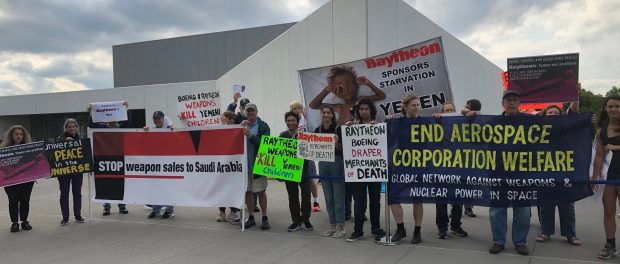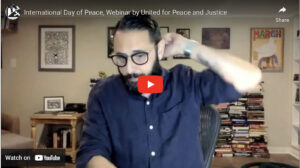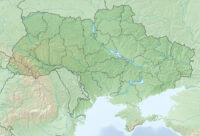As the Saudi-waged war on Yemen gained steam with U.S.-made weapons killing tens of thousands of Yemeni children, peace activists in the Boston area, home to the Raytheon Company, developed a sophisticated campaign to highlight the company’s destructive misdeeds.
During the Covid-19 pandemic, while the U.S. government is unable to manufacture necessary protective garments (masks and gowns) for doctors and nurses working round the clock to save lives, U.S. arms manufacturers have been awarded new contracts for building more weapons with which to take lives. Raytheon leads the pack with a Navy contract for 32 new Tomahawk missiles and as sole-source contractor for the highly classified Long-Range Standoff nuclear cruise missile. United for Peace and Justice member groups and others in Massachusetts are working to shed light on Raytheon’s military contracting and its impacts.
Why Raytheon?
“Our work is still to insure peace, paradoxically through developing the world’s most powerful weapons systems…and these works are wonderful works indeed.” —General Electric chairman, Fred Borch, 1964
“Together, we’re advancing defense strategy, protecting people and infrastructure through proven solutions that make that world a safer place – faster than ever before.” —Raytheon Annual Report, 2018
by Paul Shannon
What does Raytheon do? Celebrate gender and racial diversity? Offer a helping hand to little girls? Feed the hungry? Promote a green economy? Spread scientific knowledge to our young?
There is no better practitioner of the American genius for papering over wanton destruction and mayhem with comforting illusion than the Raytheon Company, headquartered in Waltham, Massachusetts. But in the real world, Raytheon is an essential component of the largest war machine ever constructed. In the real world, Raytheon is emerging as one of the leading merchants of death of our time.
The Raytheon Anti-war Campaign seeks to expose this reality, highlight the human destruction that Raytheon weapons cause (especially in Yemen), mobilize against the atrocities perpetrated with Raytheon arms, and lay bare the ways in which the company wields power.
The campaign is being waged by a coalition of groups, including Mass. Peace Action, United Against War and Militarism, Veterans for Peace, the Friends Meeting at Cambridge-Peace and Social Concerns, the Campaign for Peace, Disarmament and Common Security, American Friends Service Committee and the Women’s International League for Peace and Freedom.
The Raytheon Anti-War Campaign held its first demonstration in August of 2018, along Concord Avenue in Cambridge, in front of the large Raytheon facility located there. It was the first of scores of spirited rallies the campaign would organize over the next 18 months, until the coronavirus hit. The campaign was officially launched at the end of September 2018 at an educational forum headlined by Medea Benjamin at the Quaker meeting house in Cambridge.
Raytheon, one of President Trump’s favorite companies, is based right here in “liberal” Massachusetts and our “liberal” politicians proudly celebrate its presence. The immediate goal of the campaign is to use Raytheon’s critical support for the U.S./Saudi war against Yemen and the company’s extensive presence in Massachusetts to give visibility to, create controversy around, and mobilize opposition to that war. The message is, “The war in Yemen may seem far way, but one of the key players involved in that war just goes along its merry way here in Massachusetts, piling up profits it makes off that killing: Yemen is Massachusetts’ War. We have a responsibility to end it.” In the process, we educate the public about the destructive U.S./Saudi Alliance and Raytheon’s role in promoting and profiting from U.S. war policies.
The clearest connection of Raytheon to that war is the billions of dollars in arms sales Raytheon makes to Saudi Arabia – including its guided Paveway bombs that have been used against civilian targets and civilian infrastructure in Yemen. Almost five percent of Raytheon’s total revenue comes from weaponry sales just to the Saudis – never mind what it sells to dozens of other countries. The Saudi war against Yemen has caused thousands of deaths and the infrastructure destruction that has led to starvation and cholera in that desperately poor country.
But the weapons sales are only the tip of the iceberg. Raytheon boasts of its 50-year relationship with Saudi Arabia, helping to protect the regime. It has 400 employees in-country. It has signed a memorandum of understanding with the Saudis to cooperate in military-related projects, including the establishment of Raytheon Arabia to be based in Riyadh, which will engage in increasing military cooperation. Recently President Trump gave Raytheon the OK to produce its sophisticated Paveway bombs in Saudi Arabia jointly with the Saudis. The truth is that Raytheon is a key component of the armed forces of the Kingdom.
And Raytheon is actually involved in the formulation of U.S. policy supporting the war in Yemen. Mark Esper, our present Secretary of Defense, was Raytheon’s top lobbyist. As Secretary of Defense, along with a lobbying firm currently hired by Raytheon, he deep-sixed, at the last minute, an amendment to the recent National Defense Authorization Act which would have ended U.S. involvement in the Yemen war.
Over the last year and a half, the Raytheon campaign has carried out scores of public actions at Raytheon plants, at our universities and at events sponsored by Raytheon or groups funded by Raytheon.
Raytheon recruiters are constantly at MIT, Northeastern, Boston University, Tufts, UMass / Lowell, and other colleges. The campaign has developed relationships with students at some of these colleges to carry out protests to publicize the war in Yemen and inform those who might be interested in working for Raytheon as to what the company is all about.
Raytheon uses its profits to fund numerous community groups, who sing the company’s praises, such as the Girl Scouts of America, the Walk for Hunger, MathCounts, the Boys and Girls clubs, and the Moon Shot commemoration project at the JFK Library on Boston Harbor. It runs science programs in many schools. We have established a presence at some of the events of these organizations, and have urged them to condemn Raytheon’s role in war crimes in Yemen.
Last fall, the campaign worked with State Rep. Denise Provost to file a bill that would divest the Mass. Pension Plan of its holdings in Raytheon and other companies selling weapons to the Saudis. The bill got 20 cosponsors. The hearing of the bill took place in Gardner Auditorium where for hours speaker after speaker testified, condemning Raytheon’s role in Yemen, and urging the Public Service Committee to give the bill a favorable report. Despite a valiant lobbying effort by members of the campaign, the committee sent the bill to study, effectively killing it. But our efforts have significantly raised awareness of the Yemen war and Raytheon’s role.
The campaign has sent out speakers several times to make public presentations. One of our members has created a power point presentation on the campaign. Our goal had been to significantly increase presentations to student, community and religious groups. Then, the coronavirus hit and turned the country upside down. We are now adapting our work to the present realities, carrying out further research on Raytheon and the tragedy in Yemen, updating our slide show, organizing a webinar series on Yemen and on the military industrial complex, and considering a project to put pressure on Raytheon to produce ventilators for hospitals instead of weapons for Saudi Arabia.
The Raytheon Anti-War Campaign has made a significant contribution to increasing the strength of the peace movement in eastern Massachusetts. We bring together students, young people and older activists to raise our voices for peace and against our country’s pervasive militarism and the brutal wars that we wage. We invite you to join us.
Paul Shannon is an organizer for the Raytheon Anti-war Campaign and is on the board of Mass. Peace Action and the Campaign for Peace, Disarmament and Common Security.



